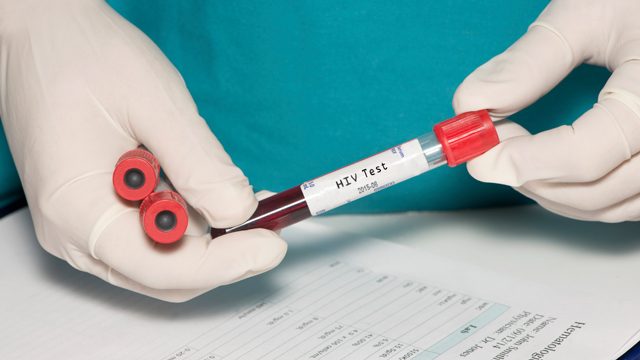SUMMARY
This is AI generated summarization, which may have errors. For context, always refer to the full article.

MANILA, Philippines – International watchdog Human Rights Watch (HRW) said the country is not doing enough to address the epidemic, even as the Philippines launched the world’s first AIDS hour on May 14, Saturday, in observance of the 33rd International AIDS Candlelight Memorial (IACM),
In May 2015, the World Health Organization (WHO) reported that the country has the fastest growing human immunodeficiency virus (HIV) epidemic in the world. The Department of Health (DOH) estimated in November 2015 that HIV cases in the Philippines may reach 133,000 by 2022.
While raising awareness is key in helping solve the problem, HRW said DOH should be targeting critical groups.
“By omitting HIV prevention measures for men-who-have-sex-with-men (MSMs) and people who inject drugs (PWIDs), the AIDS Hour is the government’s latest missed opportunity to educate and assist people at highest risk of contracting the virus,” HRW said in a statement.
The international watchdog lauded the government for rolling out “sound programs” to address the epidemic – like expanding public access to free testing and establishing treatment centers. (WATCH: Curbing the HIV epidemic in PH)
But HRW maintained that the government is failing to take effective measures to curb HIV transmission among MSMs and PWIDs, two groups with the highest prevalence rate. (READ: HIV in 6 PH cities may reach ‘uncontrollable’ rates – DOH)
“Reducing HIV transmission among MSMs – particularly those between 15-24 years of age – requires targeted education campaigns on condom use and safe sex. The government has ignored these approaches, failing to initiate a mass education program involving television and billboard ads promoting condom use and safe sex for the MSM population,” the group said.
HRW added that there is a need for the government to implement an education curriculum that teaches safe sex and HIV prevention to students.
Cebu City’s fight
Cebu City is at the heart of the country’s HIV epidemic with 7.7% prevalence of HIV among males having sex with males (MSM) alone, as of April 2015. In 2013, 52% of people who inject drugs in the city were infected with HIV. (READ: Cebu to presidential bets: What will you do about HIV epidemic?)
“Yet the government has criminalized the most effective strategy to reduce HIV transmission among PWIDs – access to clean hypodermic needles,”
The possession and distribution of drug paraphernalia like syringes without a doctor’s prescription is considered a crime under the Dangerous Drugs Act. The government scuttled a long-running clean needle program in the city in 2015. (PODCAST: Cebu’s HIV problem is also a drug problem)
“That prohibition encourages needle-sharing among PWIDs, which increases the risk of HIV transmission. Providing clean needles, experts and advocates agree, would be a key step in the right direction,” HRW said.
The group said, that according to health experts, obstructive government policies are only worsening the epidemic, causing it to spill over into nearby towns and cities
While awareness about the disease is important, the HIV emergency in the country requires urgent action, according to HRW, “and making the so-far dangerously overlooked epidemic among MSMs and PWIDs a top priority.” – Rappler.com
Add a comment
How does this make you feel?
There are no comments yet. Add your comment to start the conversation.